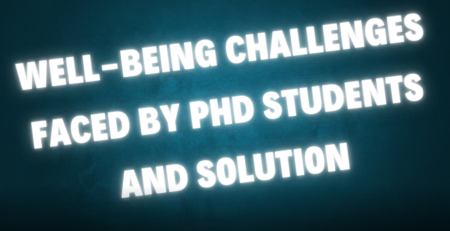28Jul

In any research study or data-driven project, handling missing data in your dataset is a crucial step that can significantly affect your results. Missing values can arise from errors in data collection, incomplete responses, or system issues. If not addressed properly, they can lead to biased conclusions and reduce the overall quality of your research.
In this post, we’ll explore practical techniques to identify, manage, and impute missing data effectively—ensuring your analysis stays robust and accurate.
Missing values can distort statistical analysis and lead to unreliable conclusions. If not treated properly, missing data can:
Understanding why data is missing helps you choose the right solution. Some common causes include:
Identifying the root cause is the first step in addressing the issue effectively.
There are three types of missing data in datasets:
Understanding which type of missing data you’re dealing with ensures your handling strategy is scientifically sound.
Before fixing missing data, you must detect it. Common methods include:

Removes any row with at least one missing value. It’s fast but risky—works best when the dataset is large and missing data is MCAR.
Uses all available data without deleting entire rows. Useful in correlation and covariance calculations but can introduce inconsistencies.
Replaces missing values with central tendencies. Simple and commonly used, but may reduce data variance and distort relationships.
Predicts missing values using linear or logistic regression. Ideal when other variables strongly correlate with the missing ones.
Generates multiple plausible values and averages them across datasets. This method reduces bias and is widely accepted in academia.
Fills missing data based on the closest neighbors in feature space. Useful in datasets with structure or strong clustering.
Algorithms like Random Forests or XGBoost can automatically handle missing values, offering a smart solution for large or complex datasets.
A PhD scholar submitted a dataset to us with over 20% missing values in survey responses. Instead of deleting rows, we applied multiple imputation with regression to retain valuable data and improve accuracy. The cleaned dataset passed peer review and the paper was published in a Scopus-indexed journal.
This shows how the right missing data strategy can lead to research success.
Following these practices keeps your data transparent and research credible.
For efficient and accurate handling of missing data, use:
These tools support seamless handling of missing data across research workflows.
Properly handling missing data in your dataset is crucial to producing clean, trustworthy, and academically sound research. Whether you’re an early-stage PhD scholar or working on a high-impact paper, don’t overlook this critical step. By selecting the right method—be it deletion, imputation, or machine learning—you can reduce bias, preserve insights, and improve your outcomes.
If you’re unsure how to proceed, Kenfra Research is here to help. We offer personalized assistance in data cleaning, missing value imputation, and research support—empowering you to submit polished, high-quality work.

A well-defined Problem Statement is the foundation of a successful PhD research study. The Problem Statements provides clarity, focus,... read more
The Paper Writing service is a special service that is handled by the experts to assure successful publication of the... read more

The PhD journey in 2025 is unlike any other academic experience. While it offers opportunities to make significant contributions... read more
Although there are many resources available to assist potential PhD candidates in locating doctorate programmes, selecting a research subject is... read more

Publication Requirements for PhD Programs in India How Many Publications Are Required to Get a PhD in India?Pursuing a... read more
If a 48-year-old has received a gold medal from the Indian Institute of Science (IISc), it is a testament to... read more
It's always inspiring to hear stories of individuals achieving academic success and pursuing their passions. Completing a Ph.D. in chemistry... read more

Embarking on a PhD journey is a commendable pursuit, filled with intellectual growth and academic achievements. However, the path... read more
WhatsApp us
Leave a Reply